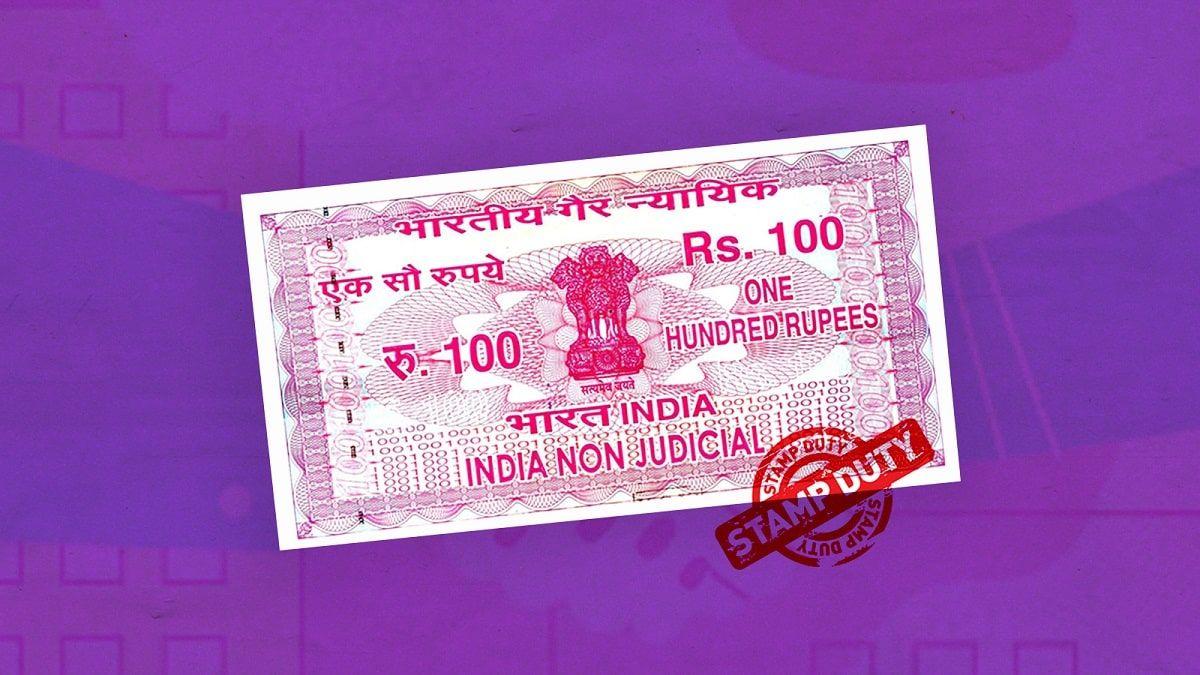Draft Indian Stamp Bill, 2023 (Indian Express)

- 31 Jan 2024
Why is it in the News?
The Centre has proposed repealing the Indian Stamp Act, of 1899 and bringing in a new law for the stamp duty regime in the country.
What is Stamp Duty?
- A stamp duty is essentially a government tax, which is levied to register documents, like an agreement or transaction paper between two or more parties, with the registrar.
- Usually, the amount specified is fixed based on the document’s nature or is charged at a certain percentage of the agreement value stated in the document.
- Stamp duties can be levied on bills of exchange, cheques, promissory notes, bills of lading, letters of credit, policies of insurance, transfer of shares, debentures, proxies and receipts.
- Accepted as valid evidence in a court of law, stamp duties are levied by the Centre but appropriated by the concerned states within their territories under Article 268 of the Constitution.
Notable Provisions of the Draft Indian Stamp Bill, 2023:
Several provisions of the Indian Stamp Act, of 1899 have now become “redundant” or “inoperative” Therefore, the ministry has proposed repealing the existing Act and substituting it with new legislation to “reflect the present realities and objectives.”
- The draft Bill has introduced provisions for digital e-stamping.
- “Electronic stamp” or “e-stamp” means an electronically generated impression denoting the payment of stamp duty by electronic means or otherwise, according to Section 2 (18) of the Bill.
- There are also provisions for digital signatures.
- Section 2 (17) of the Bill states that the words “executed” and “execution”, used for instruments, will mean “signed” and “signature” and include attribution of electronic records and electronic signatures, as defined under the Information Technology (IT) Act, 2000.
- The IT Act defines “electronic records” as “data, record or data generated, image or sound stored, received or sent in an electronic form or micro film or computer generated microfiche.”
- Meanwhile, digital or electronic signature refers to the authentication of any electronic record by a subscriber through an electronic method or procedure.
- The draft Bill also proposes to raise penalties.
- It seeks to increase the maximum penalty amount from Rs 5,000 to Rs 25,000 for contravening any provisions of the law and impose Rs 1,000 per day for repeated offences.
What is the Indian Stamp Act, of 1899?
- The Indian Stamp Act, of 1899 is a fiscal or money-related statute that lays down the law relating to tax levied in the form of stamps on instruments recording transactions.
- Under Section 2 of the Act, an instrument includes every document by which any right or liability is or purports to be, created, transferred, limited, extended, extinguished or recorded.
- According to this Act, a “stamp” has been defined as “any mark, seal or endorsement by any agency or person duly authorised by the State Government, and includes an adhesive or impressed stamp, for the purposes of duty chargeable under this Act”.
- Section 3 of the 1899 Act prescribes that certain instruments or documents shall be chargeable with the amount indicated in Schedule 1 of the Act.
- These include bills of exchange or promissory notes.
